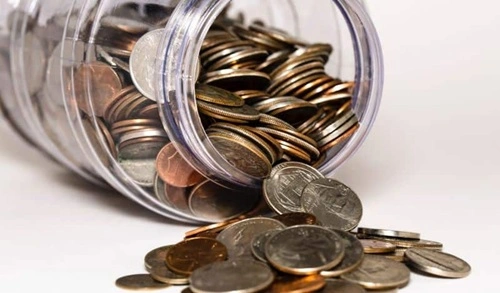Yes, it is generally illegal to destroy U.S. coins if the intent is fraudulent, such as altering coins to commit fraud or deception. However, for non-fraudulent purposes like art, jewelry, or novelty uses, the law is more lenient. The United States Code, Title 18, Section 331 specifically prohibits defacing or mutilating coins with the intent to defraud.
The Legal Framework for Destroying Coins
1. What Does the Law Say?
- Title 18, Section 331 of the U.S. Code makes it a federal crime to fraudulently mutilate, cut, deface, or alter any coin minted by the U.S. government.
- The key element of the law is intent. Destroying coins for fraudulent purposes—such as altering their appearance to pass them off as a different denomination—is illegal.
2. Non-Fraudulent Destruction
- If the purpose of destroying coins is not fraudulent—for example, melting pennies for art or creating jewelry—there is generally no legal consequence. However, specific laws restrict melting certain coins, such as pennies and nickels.
3. Melting Coins
- The U.S. Mint has rules against melting pennies and nickels due to their metal content. In 2006, the U.S. Mint issued regulations prohibiting the melting of these coins to prevent people from exploiting the rising value of copper and nickel.
- Violating this rule can result in fines of up to $10,000 or imprisonment for up to five years.
Why Destroying Coins Can Be Problematic
1. Fraudulent Activities
- Defacing coins to make them appear as higher-value denominations undermines the trust in the currency system.
- Example: Altering a penny to resemble a dime could defraud vending machines or other coin-operated systems.
2. Metal Value Exploitation
- The value of the metal in some coins, such as pre-1982 pennies (mostly copper), can exceed their face value. Melting such coins for profit could destabilize the monetary system.
3. Preservation of Historical Coins
- Destroying rare or collectible coins reduces their availability, impacting numismatic value and historical preservation efforts.
Legal Uses for Destroyed Coins
1. Art and Craft
Coins are often used in artwork, jewelry, or crafts. Since these uses are not fraudulent, they are generally allowed.
2. Penny Press Machines
Machines that flatten and engrave pennies into souvenirs are legal. The U.S. Treasury has stated that this practice is acceptable because it does not intend fraud.
3. Educational or Novelty Purposes
Coins may be destroyed or altered for educational demonstrations or novelty items as long as there is no intent to deceive.
Enforcement and Penalties
1. Criminal Charges
- Violating the laws regarding fraudulent destruction or melting of coins can lead to significant penalties, including fines and imprisonment.
- Examples of fraud cases include altering coins to resemble rare or valuable specimens for sale.
2. Monitoring by the U.S. Mint
- The U.S. Mint monitors activities involving large-scale melting or destruction of coins, particularly pennies and nickels.
Common Misconceptions
1. Is Destroying Coins Always Illegal?
No, it is not always illegal. Intent matters. Non-fraudulent uses, such as art or novelty, are generally permitted.
2. Can You Melt Coins for Scrap Metal?
No, pennies and nickels cannot be melted for scrap metal due to specific U.S. Mint regulations.
Related FAQs
Q1. Can I destroy coins for art or jewelry?
Ans: Yes, destroying coins for non-fraudulent purposes like art or jewelry is generally legal.
Q2. Is it illegal to deface coins in a penny press machine?
Ans: No, altering coins in penny press machines for souvenirs is legal as there is no intent to defraud.
Q3. Can I melt silver coins for profit?
Ans: Yes, melting silver coins for their metal value is legal since there are no regulations restricting the melting of silver coins. However, collectible coins may lose value if melted.
Q4. What happens if I alter a coin to deceive someone?
Ans: Altering coins to commit fraud is illegal under federal law and can lead to fines and imprisonment.
Q5. Can businesses refuse defaced coins?
Ans: Yes, businesses may refuse defaced coins if they are no longer recognizable as legal tender.
Conclusion
Destroying coins is not inherently illegal in the United States, but the intent behind the act determines its legality. Fraudulent activities, such as altering coins to deceive others, are strictly prohibited under federal law. On the other hand, non-fraudulent uses like art or novelty purposes are permissible. For pennies and nickels, additional restrictions apply to prevent melting for metal value. Always be mindful of federal and local regulations when handling currency in unconventional ways.


